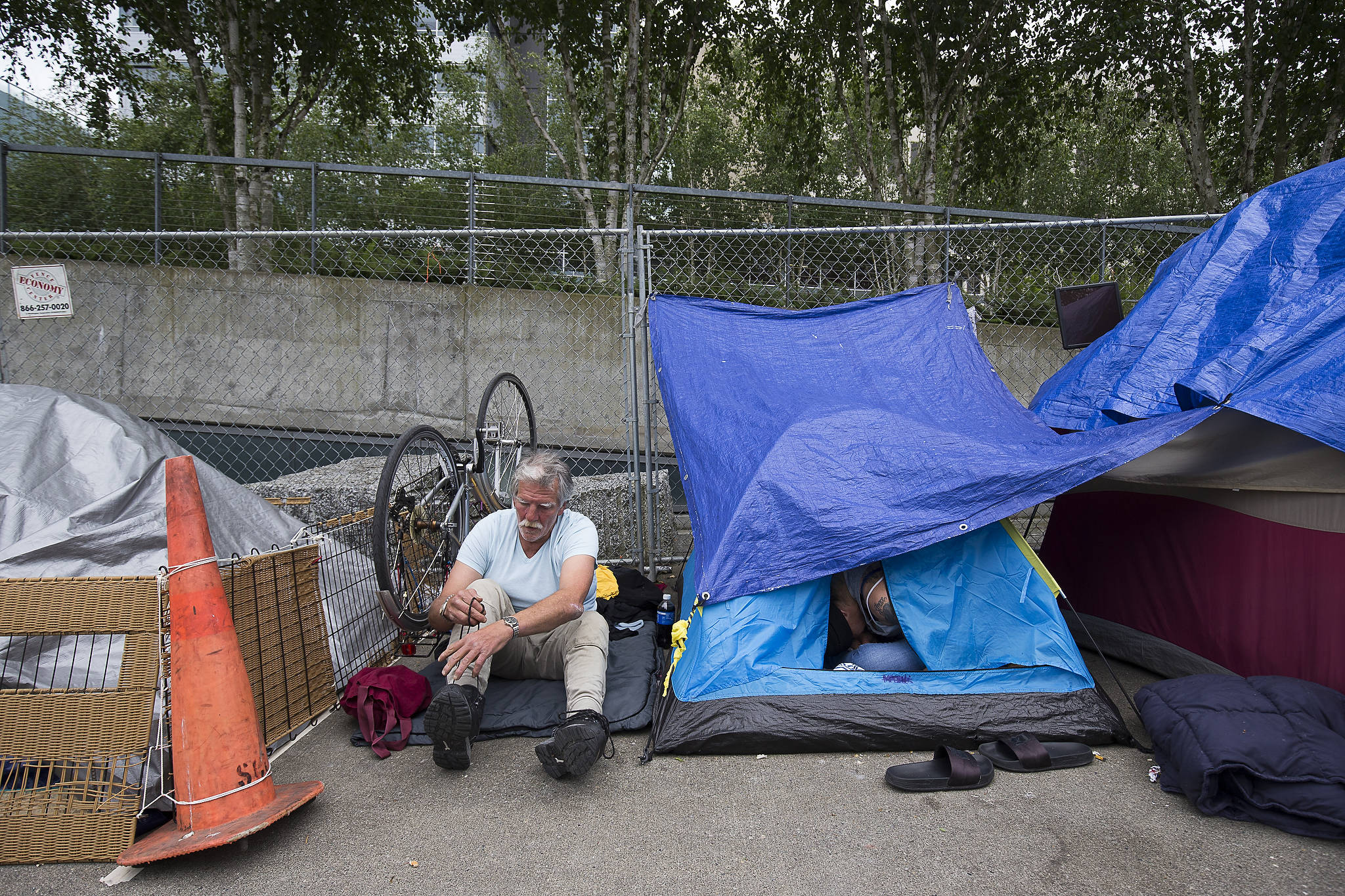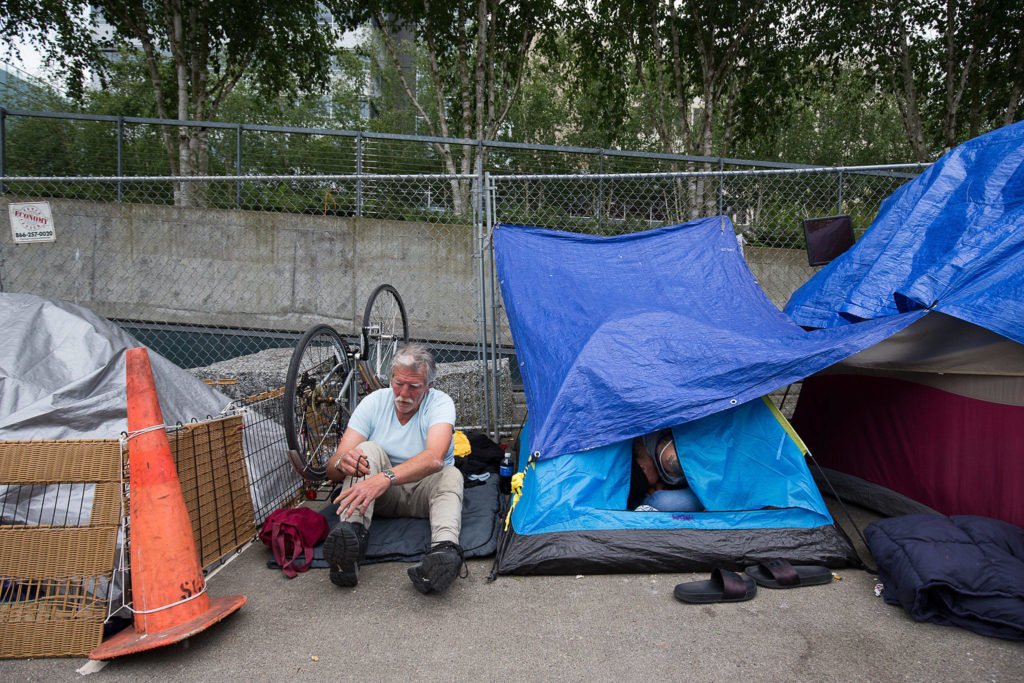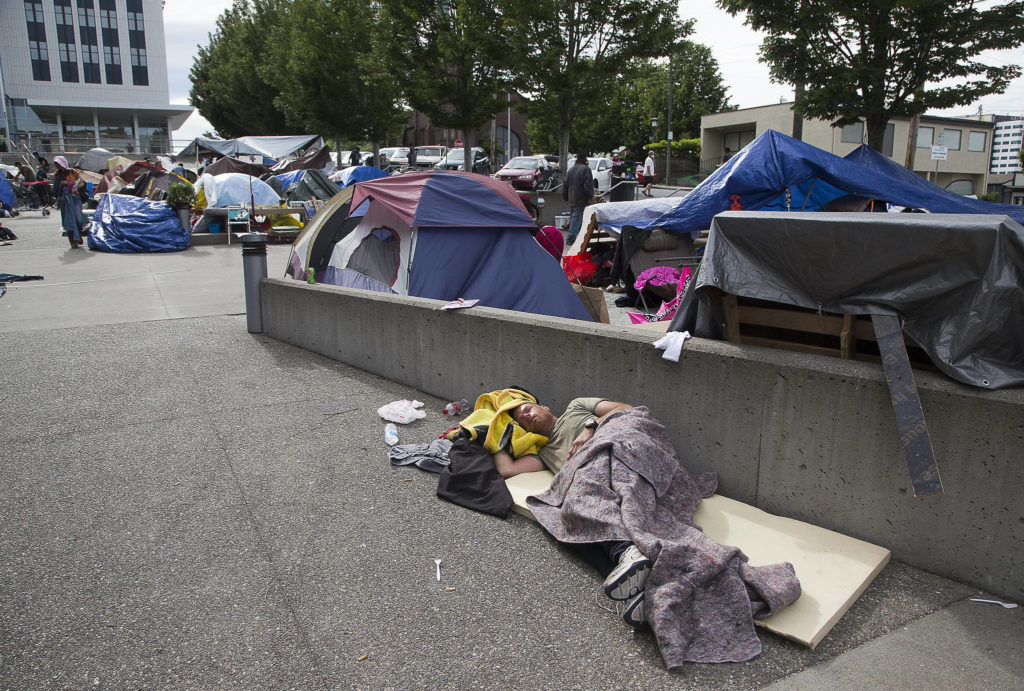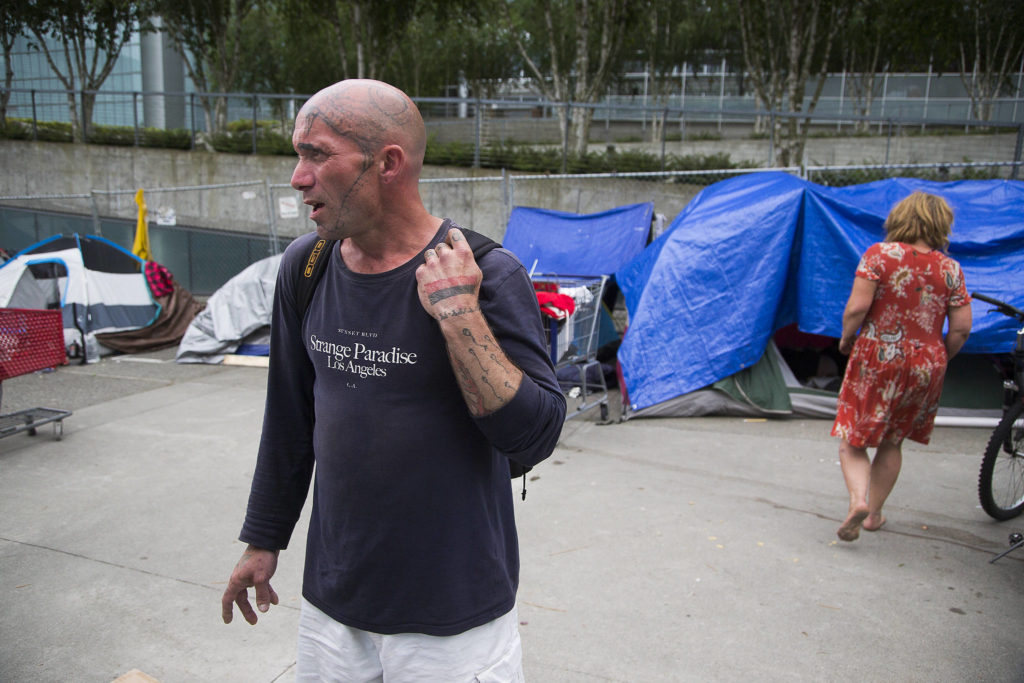EVERETT — She was three years “clean and sober” with a job and a roof over her head.
But then, the pandemic struck. There went her job as a bartender.
Her living situation crumbled when she was accused of breaking the lease at the apartment complex where she was staying.
“It’s just amazing, going from a nice home, all of the sudden. And now …” the woman, who declined to provide her name, trailed off.
She stood next to a makeshift shelter on a patch of Snohomish County-owned concrete on the northeast corner of Oakes Avenue and Wall Street in downtown Everett, where dozens of homeless people are now camping.
“All these people could be in a house but nobody out there will help because they’re scared of us,” she said, motioning to the slipshod network of tarps and tents around her.
County officials say those living in the encampment have been offered an array of services, from housing to behavioral health resources.
Another 250 people have been provided with vouchers for hotels and motels, and the county’s Department of Human Services is now trying to move those individuals into more-permanent housing.
But the pandemic is straining local organizations that usually provide for the homeless, and social distancing restrictions have limited beds at local shelters.
The public health crisis has compounded an “epidemic” of chronic homelessness — in Snohomish County and across the country, said county Human Services Director Mary Jane Brell Vujovic.
“This really is a community issue, and we are working on community solutions,” Brell Vujovic said. “We really just haven’t had the resources to do what we need to do for some time.”
Of Snohomish County’s roughly 1,115 homeless people, 280 lived in vehicles, about 20 lived in abandoned buildings and nearly 300 lived on the streets when the annual Point-In-Time survey was conducted in 2019. The others were in transitional housing or emergency shelters.
“We had a shortage of emergency shelter prior to the pandemic and need increased capacity countywide — this problem is not new,” Julie Willie, Everett’s Director of Community Development, said in a statement. “During the pandemic there have been even less shelter resources, less access to restrooms and hygiene, less open community spaces, and limitations based on required physical distance and safety concerns. We continue to work with our partners to address these issues appropriately.”
The Carnegie Resource Center, which is normally a hub for social services, is now serving as a shelter for 40 to 50 people. The county hopes to return the building to regular operations next month so that homeless people can go there to be connected with a range of resources, such as health benefits and substance abuse treatment.
County staff recently moved the encampment from the lawn just south of the Carnegie Resource Center to where it stands now.
“At least in the short haul, we’re planning to keep them there while we work with partners at the city on longer term options and solutions,” Brell Vujovic said.
The old site needed to be cleaned, and the new location offers more space for people to socially distance themselves, she said.
There are portable toilets at the encampment. The county has also opened a sanitation site in a nearby building, where people can shower and get vouchers to wash their clothes.
On a recent Tuesday afternoon, rows of tents were erected with little space in between. Few people wore masks.
Rob Ferguson, 45, said he prefers the space to a shelter or traditional housing.
“It’s fun — like camping,” he said.
“I’m very spiritual,” he added. “I can live in the mountains by myself.”
But for others, the encampment is a last resort.
Raido Starcloud was sleeping in the Carnegie building. Quarters were too close, though, for the pandemic, he said.
“There isn’t nowhere else,” said Starcloud, 42.
Not everyone in the camp is drunk or high or mentally ill. But they all live with that stigma, Starcloud and others there said.
He’s been on a waiting list for housing since 2015, he said. He was recently slated for interviews to be placed in a unit. But when COVID-19 hit, the landlords canceled, he said.
“It’s not easy. It’s really hard,” Starcloud said. “Especially when you feel like you’re fighting a losing battle.”
Rachel Riley: 425-339-3465; rriley@heraldnet.com. Twitter: @rachel_m_riley.
Talk to us
> Give us your news tips.
> Send us a letter to the editor.
> More Herald contact information.





























